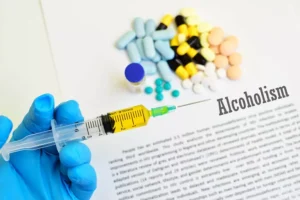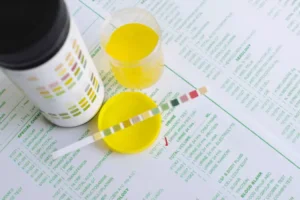Amphetamine Uses, Dosage, Side Effects & Warnings

Addiction happens when you use amphetamines to get high or improve performance. Addiction means your body and mind are dependent on the drug. You are not able to control your use of it and you need it to get through daily life.
Dosage for narcolepsy
From the 1930s, amphetamine was used to treat affective disorders, obsessive-compulsive disorder (OCD), and schizophrenia. Amphetamines and amphetamine derivatives have been used in the past to treat narcolepsy. ADHD is characterized by hyperactivity, irritability, how long do amphetamines stay in your system mood instability, attention difficulties, lack of organization, and impulsive behaviors. Our editors will review what you’ve submitted and determine whether to revise the article. Ask your pharmacist where to locate a drug take-back disposal program.
What is the difference between amphetamine and methamphetamine?
Providers will monitor how your body reacts to amphetamines to see if they alleviate your symptoms and prevent side effects, especially addiction. A person’s tolerance begins slowly, which could result in dependence over time. If you take amphetamines and feel you are dependent on the drug, talk with your healthcare provider.
- Depending on what type and the dosage of the prescribed amphetamine, take extended-release capsules once daily and immediate-release tablets and oral solutions up to three times per day.
- A review published in Cochrane in 2011 suggested that adults with ADHD might benefit from short-term use of amphetamines, but that they were unlikely to persist with the treatment because of adverse effects.
- Those depressing feelings may drive people to continue using the drug so that the dopamine and the positive feelings it produces return.
- You can also become dependent if you take more than prescribed.
- The extended-release orally disintegrating tablet is usually taken once daily in the morning with or without food.
Narcolepsy Quiz: Test Your Medical IQ

You may be unsuccessful at cutting down or stopping your use of amphetamines. You may continue to crave the stimulant even though you know they’re causing persistent or recurrent physical or psychological problems. Be sure to schedule appointments with your doctor on a regular basis so that you do not run out of medication. Do not sell, give away, or let anyone else take your medication. Selling or giving away amphetamine may harm others and is against the law. Store amphetamine in a safe, preferably locked, place so that no one else can take it accidentally or on purpose.
Methamphetamine abuse may also worsen the progression of HIV and its consequences. In animal studies, methamphetamine increased viral replication; in human methamphetamine abusers, HIV caused greater neuronal injury and cognitive impairment compared with non-drug abusers. Methamphetamine is structurally similar to the neurotransmitter dopamine.
- When taken with amphetamine, these medications can prevent your body from processing amphetamine correctly.
- Amphetamine (Evekeo, others) is also used to treat narcolepsy (a sleep disorder that causes excessive daytime sleepiness and sudden attacks of sleep).
- Stimulants including amphetamine also increase heart rate, blood pressure, and blood glucose, and dilate the respiratory tract.
Sign up for the Live Science daily newsletter now
While its behavioral and physiological effects are similar to those of cocaine, there are some major differences in the basic mechanisms of how these drugs work at the cellular level. But methamphetamine, like cocaine, results in an accumulation of the neurotransmitter dopamine, which appears to produce the stimulation and feelings of euphoria experienced by the user. Methamphetamine has a much longer duration of action and a larger percentage of the drug remains unchanged in the body. This results in methamphetamine being present in the brain longer, which ultimately leads to prolonged stimulant effects. Fears of the drug’s side effects and its potential for addiction and abuse caused them to fall out of favor for this purpose.
Amphetamines’ Effects on Your Brain

Amphetamine has been trialed for a wide variety of conditions. Now, it is mainly used to treat ADHD, and, rarely, depression. In the past, it has been used to treat narcolepsy and to help with weight loss, but this is less common now. Taking amphetamine during pregnancy can cause premature birth, low birth weight, or withdrawal symptoms in the newborn baby. Tell your doctor if you are pregnant or plan to become pregnant. Stimulants have caused stroke, heart attack, and sudden death in people with high blood pressure, heart disease, or a heart defect.
- A substance (not included on these lists) may also be regulated as a controlled substance analogue.
- If you take amphetamines and feel you are dependent on the drug, talk with your healthcare provider.
- In the 1950s, reports of malnutrition, psychosis, and depression on withdrawal caused doctors to stop prescribing amphetamines for weight loss.
- Abuse and medical use of amphetamines has continued to increase over the past decade.
- While these can be abused, they can be helpful for attention deficit and other disorders.
- The drug is typically made in clandestine laboratories with relatively inexpensive over-the-counter ingredients.
Some studies show that this does not harm the development of the baby. If you are taking amphetamines as a new parent, talk with your provider about whether or not it is safe to breastfeed. You shouldn’t drink alcohol while taking amphetamines because it could cause an unsafe reaction in your body that could lead to addiction.

Medical Professionals







